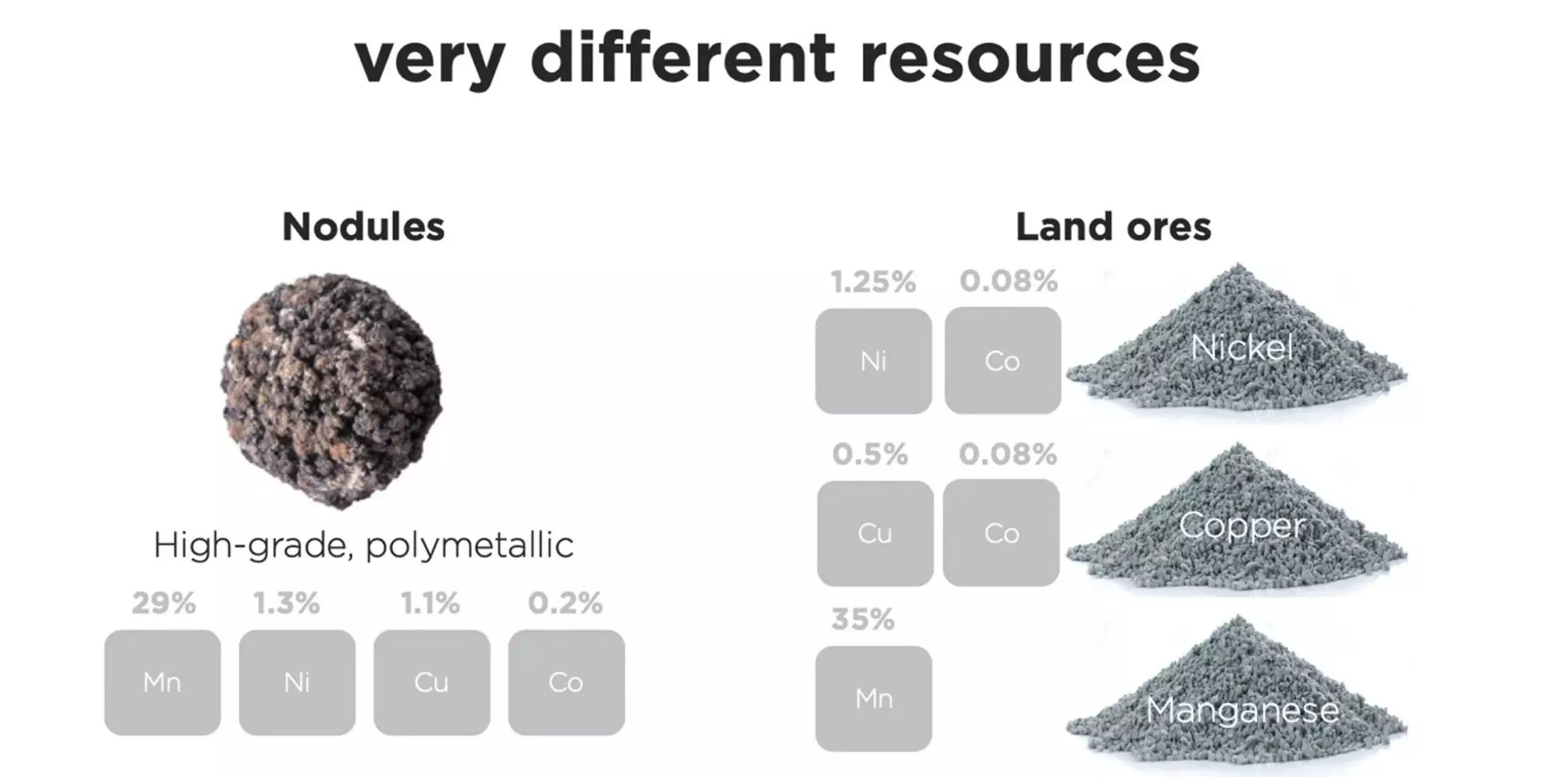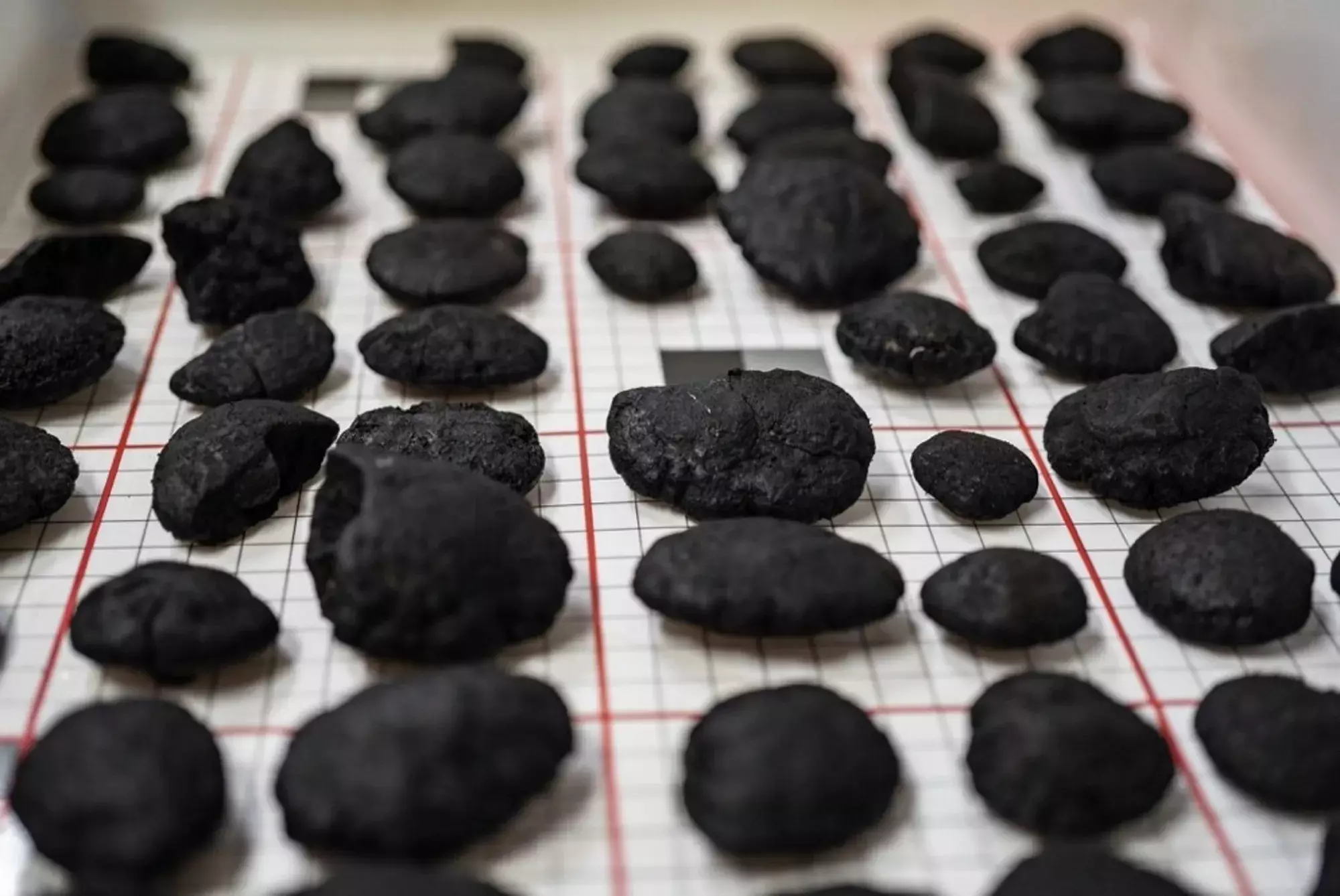Lithium, cobalt, nickel and manganese are among the main raw materials that make up electric car batteries. However, in recent years, due to the overwhelming pressure to develop and bring to market many more electric vehicles, there is a real risk that there are no raw materials to make so many batteries.
One issue we've covered before — we simply don't have the installed capacity on the planet to extract the necessary amounts of raw materials for the expected amount of electric vehicles, and it could take many years before we have it.
According to the World Bank, demand for some of the materials we use to make batteries could grow as much as 11-fold by 2050, with nickel, cobalt and copper supply disruptions predicted as early as 2025.

To mitigate or suppress the need for raw materials, there is an alternative. DeepGreen Metals, a Canadian subsea mining company, suggests as an alternative to land mining the exploration of the seabed, more precisely, the Pacific Ocean. Why the Pacific Ocean? Because it is there, at least in an already determined area, that a huge concentration of Polymetallic nodules.
Nodules… what?
Also called manganese nodules, polymetallic nodules are deposits of ferromanganese oxides and other metals, such as those needed for the production of batteries. Their size varies between 1 cm and 10 cm — they look no more than small stones — and it is estimated that there may be reserves of 500 billion tons on the ocean floor.

It is possible to find them in all oceans — several deposits are already known all over the planet — and they have even been found in lakes. Unlike land-based ore extraction, polymetallic nodules are located on the ocean floor, thus not requiring any type of drilling activity. Apparently, all it takes is simply… to collect them.
What are the advantages?
Unlike land mining, the collection of polymetallic nodules has as its main advantage its much lower environmental impact. That's according to an independent study commissioned by DeepGreen Metals, which compared the environmental impact between land mining and the collection of polymetallic nodules to make billions of batteries for electric vehicles.
Subscribe to our newsletter
The results are promising. The study calculated that CO2 emissions are reduced by 70% (0.4 Gt in total instead of 1.5 Gt using current methods), 94% less and 92% less land and forest area are needed, respectively; and finally, there is no solid waste in this type of activity.
The study also states that the impact on fauna is 93% lower when compared to land mining. However, DeepGreen Metals itself states that despite the number of animal species being more limited in the area of collection on the ocean floor, the truth is that not much is known about the variety of species that can live there, so it is not known. knows what the real impact on this ecosystem is. It is the intention of DeepGreen Metals to carry out a more in-depth study, for several years, on the long-term effects on the ocean floor.
Gerard Barron, CEO and President of DeepGreen Metals"The extraction of virgin metals from any source is, by definition, unsustainable and causes environmental damage. We believe that polymetallic nodules are an important part of the solution. It contains high concentrations of nickel, cobalt and manganese; it is effectively a battery for a vehicle electric on a rock."
According to the study, polymetallic nodules are made up of almost 100% of usable materials and are non-toxic, while minerals extracted from the earth have a lower recovery rate and contain toxic elements.
Could the solution be here to get the raw materials to make as many batteries as we will need? DeepGreen Metals thinks so.
Source: DriveTribe and Autocar.
Study: Where Should Metals for the Green Transition Come From?
Razão Automóvel's team will continue online, 24 hours a day, during the COVID-19 outbreak. Follow the recommendations of the General Directorate of Health, avoid unnecessary travel. Together we will be able to overcome this difficult phase.
